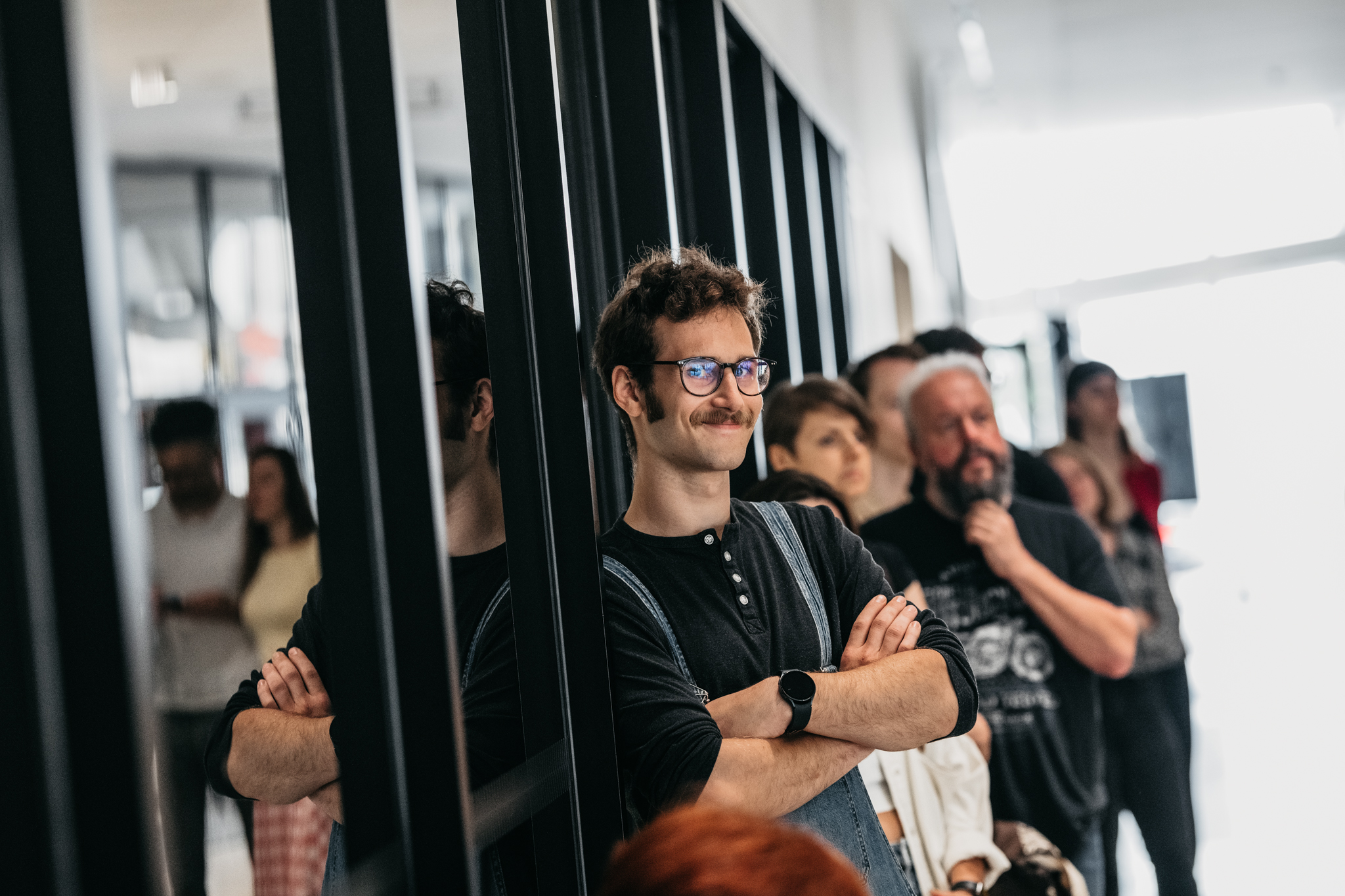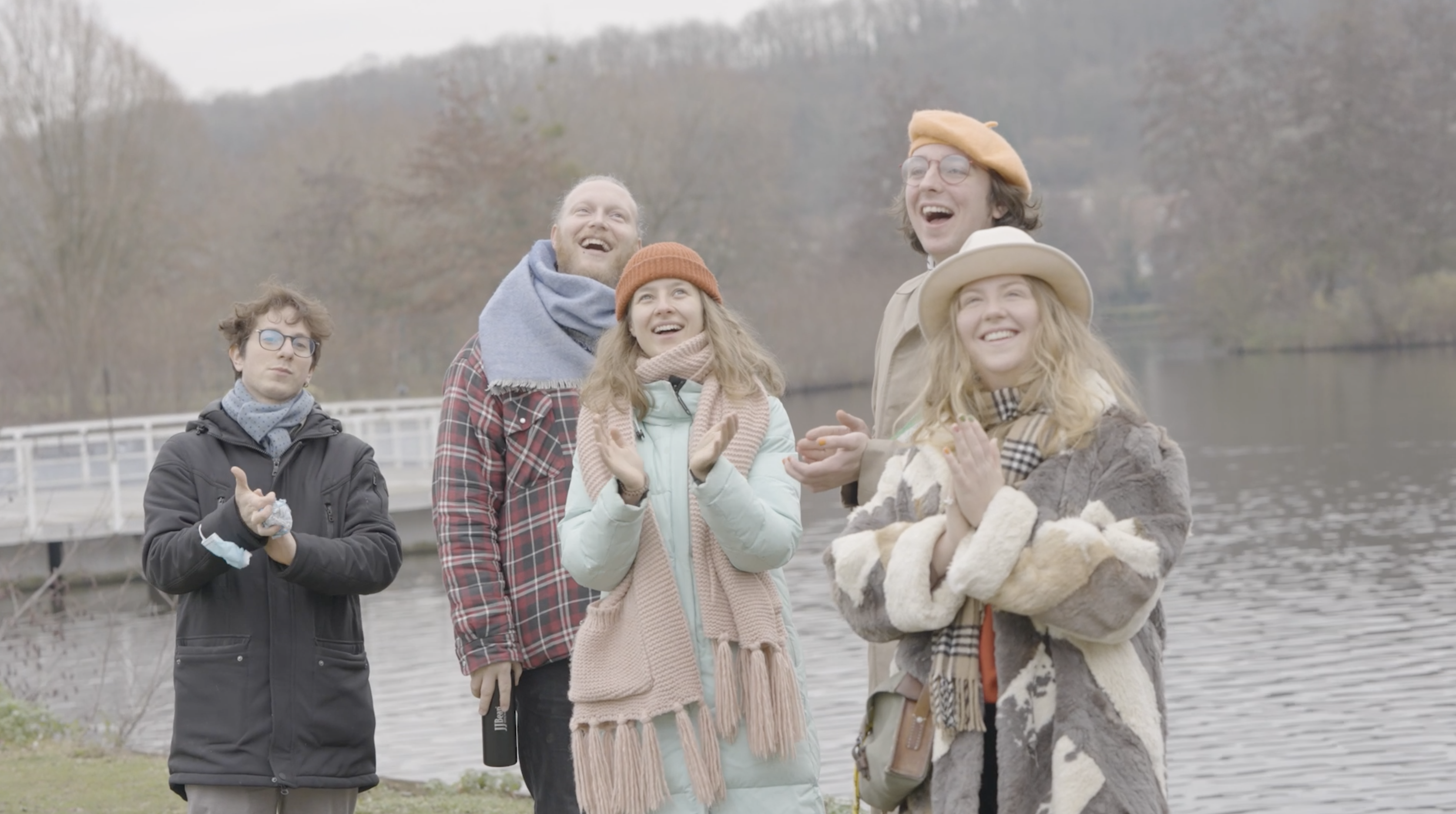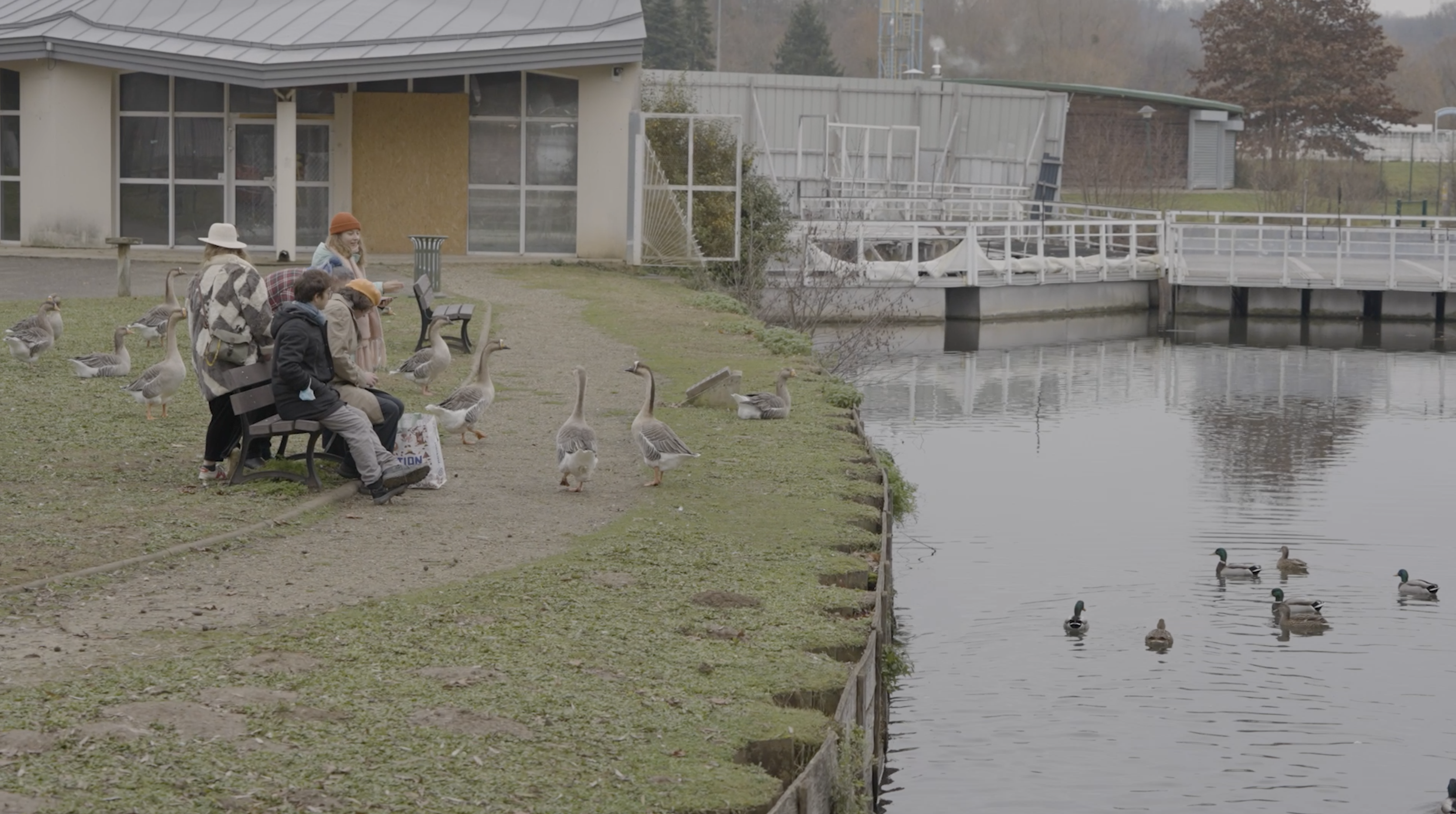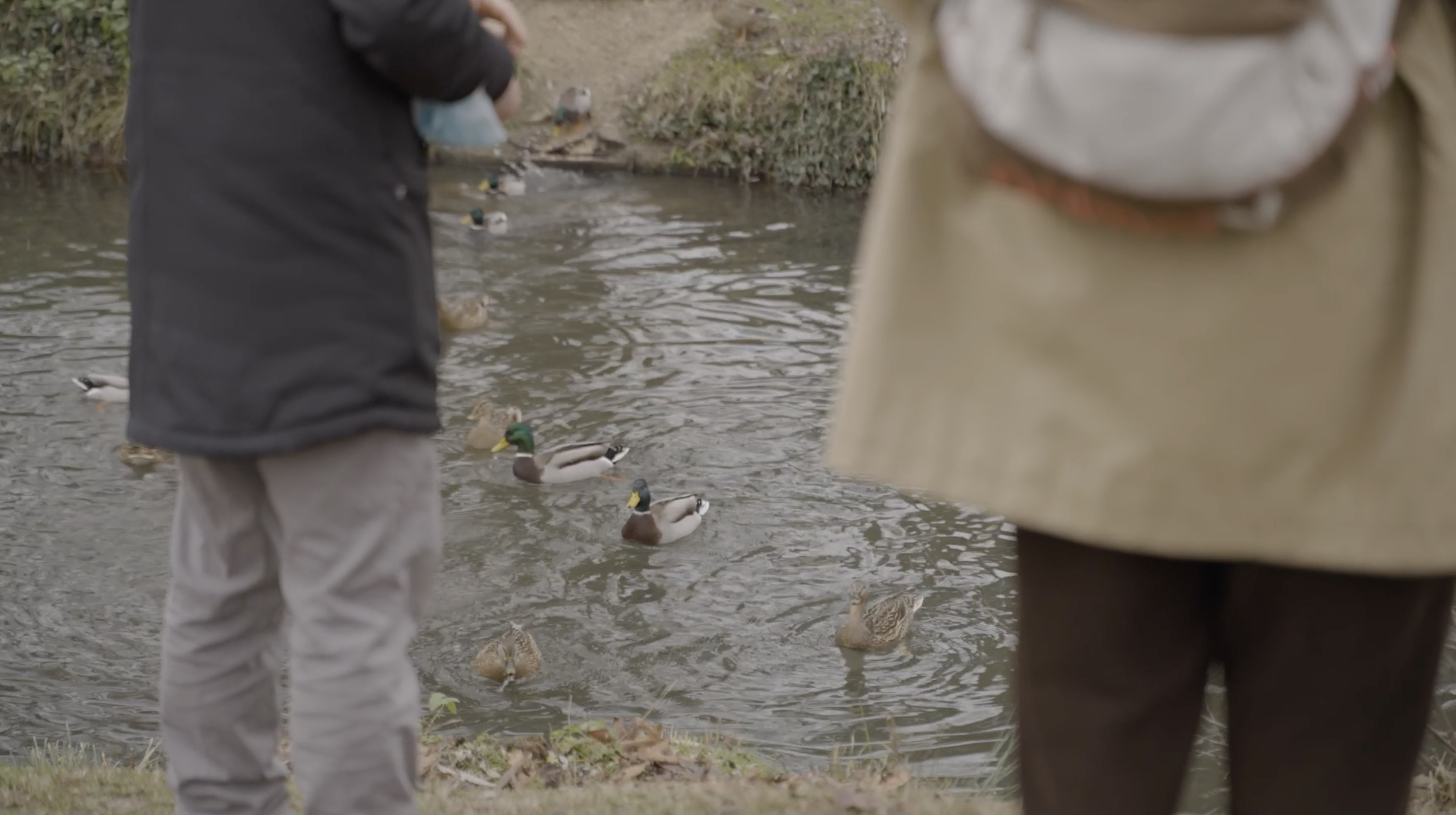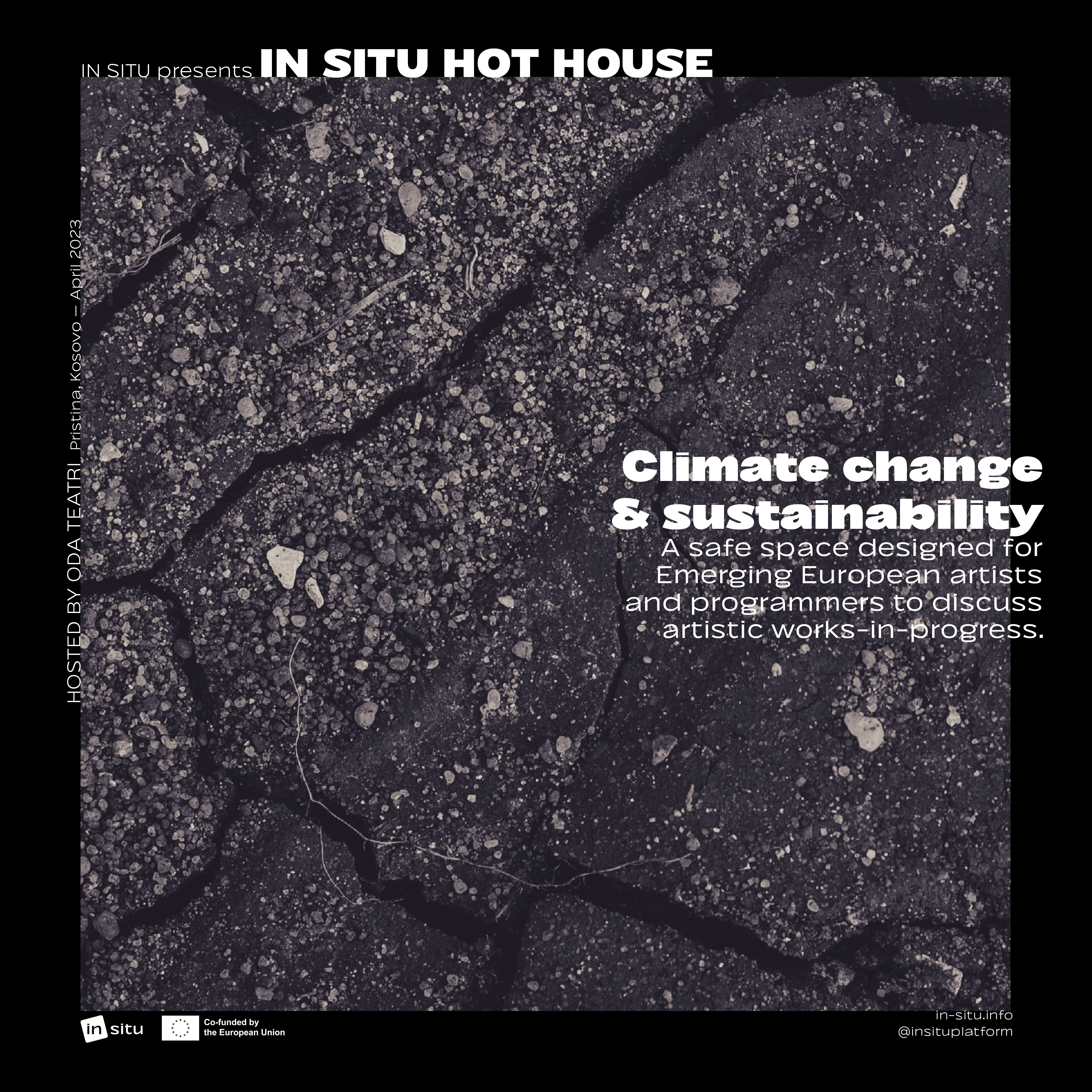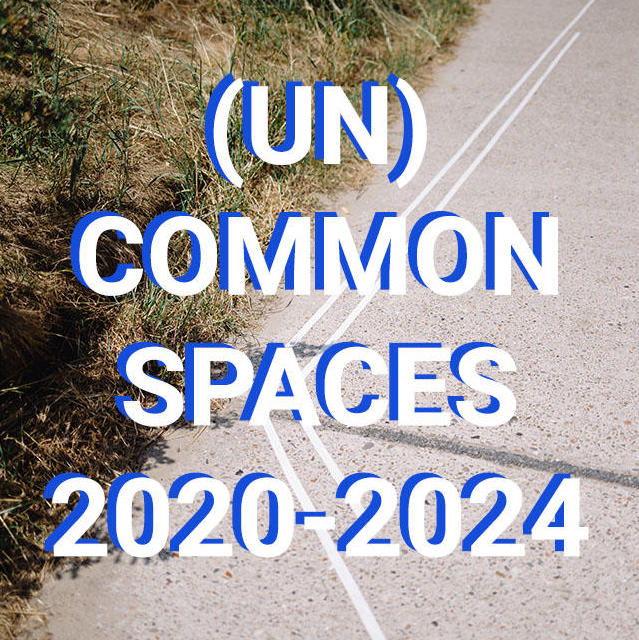Marija Baranauskaite & Joe Kent-Walters
Country : Lithuania
(UN)COMMON SPACES Emerging artist

A Lithuanian artist whose work tends to combine conceptual art and clowning, and a British comedian.
About Marija Baranauskaite
Some people call me a conceptual clown. My artistic research for the last few years was dedicated to creating work for non-human audiences – mainly objects, particularly sofas. Until now my projects did encompass performances, presentations, and workshops and all of them were human friendly, but not human oriented. Now I would like to make a show for humans but with non human performers – ducks.
After making some shows for non human public -sofas and later cellos I got asked to make a show for humans, but I did not want to loose my non human research so started thinking about making a show where I would direct ducks in the ponds and parks of public places in a way that it would be a performance for humans, but no harm for the ducks and their enviroment would be done. After few experiments I got convinced that this research has a pontential and I am excited to find new ways of developing it.
About Joe Kent-Walters
I am a clown and artists from the UK with a passion for the absurd. Primarily I work on the UK comedy club and fringe festival circuit, having made four shows for the Edinburgh Festival. However, at IN SITU I am exploring the side of my work which is concearned with collaberative projects. Within this field I apply my comedy mind to devise work thats is more conceptual in nature.
In 2021 I met Lithuanian artist Marija Baranauskaite while studying at the Philipe Gaulier School in Paris. Her research is concearned with making performance for non-human audiences such as sofas and cellos. At the time she was troubled by the fact she was being asked to make work for human audiences. The solution, to eliminate human performers. We began working on a performance experiment; making a show where I would direct ducks in the ponds and parks of public places in a way that it would be a performance for humans, but no harm for the ducks and their enviroment would be done. This work so far has gone well and we are interested in finding ways to develop it further.
